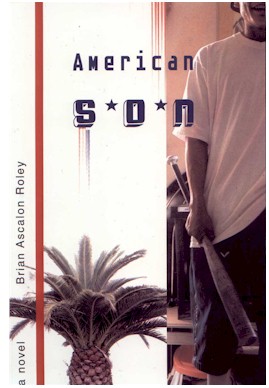Brian Ascalon Roley's American Son brings to the foreground the issues of post colonialism, ethnic invisibility/racism, masculinity and social deviance in a manner that highlights not only the Filipino American but also the American immigrant experience as well. The novel details the story of two Filipino Hapas living alone with their Filipina mother, the older brother Tomas, who embraces Mexican gang culture and his younger brother Gabe who remains insecure in regards to his ethnic identity yet "asserts" different ethnicities in different occasions due to his fear of discrimination.
Post colonialism is a major theme within American Son, Gabe and Tomas live in an American social landscape where they cannot quite find themselves ethnically. In the “post colonial” ethnic landscape of America, the brothers and their mother find themselves within a structure of racial triangulation where their Hapa identities position them at times as vicious Latino gangsters and at other times as White. Due to their physical appearance, the brothers are able to masquerade as either White or Latino. Roley’s novel details the story of Tomas, who decides to entrench himself ethnically within the cultural sphere of Latino gangster machismo and his younger brother Gabe, who finds himself pulled back and forth between considering himself “White” or falling into the same ethnic identity as his brother. Never in the novel do either of the brothers attempt to embrace their Filipino ethnic identities, instead trying to establish themselves in others.
I believe that Roley makes it a point to exclude the Filipino American identity as an “option” for these brothers in order to highlight the issue of invisibility. In a cultural spectrum in which one end of the spectrum consists of deviant/impoverished minorities such as Latinos/African Americans and the other end consists of the empowered White majority, there is no room for a Filipino American identity. Tomas, who earlier in his life “switched” back and forth from different identities, decides to choose a deviant one perhaps due to his anger towards the White majority, while Gabe out of fear of the dominance of this majority, remains indecisive. Tomas adopts an ethnic hypermasculine identity perhaps to combat a society that marginalizes his Filipino identity, yet nonetheless discriminates him as part of the deviant minority. In this manner, American Son is also a story about social deviance and its relation to racism; by excluding certain identities and histories from being known, the white majority is creating deviants such as Tomas and later in the novel, Gabe.


No comments:
Post a Comment